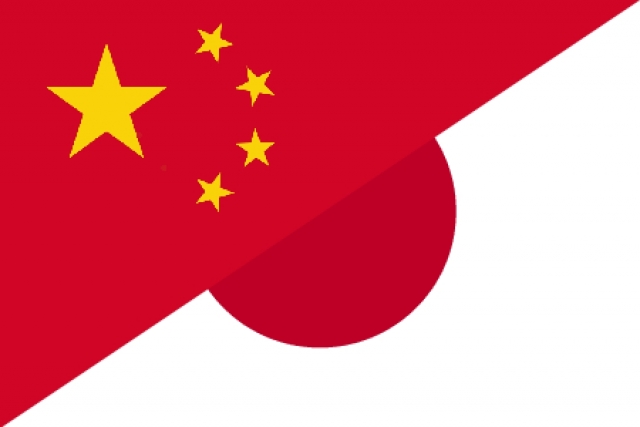
A change of power in any country is the end of the previous and the beginning of a new stage of development. Japan is no exception, especially in a situation, when the power changed suddenly and ahead of schedule. known, that former Prime Minister Shinzo Abe dreamed of, to lead the Tokyo Olympic Games, carried over from 2020 to 2021 year due to the coronavirus epidemic, after which, apparently, and intended to leave his post. You can also mention other "unfinished" cases, например перенесенный по той же причине на неопределенный срок весной этого года государственный визит в Японию председателя КНР Си Цзиньпина. Therefore, it is possible, that under the official version of the deterioration of the state of health C. Abe lurks deeper reasons, related to new tasks, faced by the country and the reset of its domestic and foreign policy.
Given Japan's close military-political dependence on the United States, determined by its status as a satellite of Washington, his "unsinkable aircraft carrier" in the APR, pays special attention to, that the new Prime Minister, Yoshihide Suga, did not replace his predecessor after, and before the presidential election 3 November in the USA. This adds additional intrigue to them.. After all, if we bear in mind the interdependence of political processes and the presence of the US levers of external control over the situation in vassal states, including Japan, without a doubt, includes, along with NATO members, it turns out one of two things. Or the outcome of the American election is a foregone conclusion, and events in Japan are developing in line with the logic of a given "vector", or the situation in the USA is completely unpredictable, and those experts are right, which predict severe shocks for the country, for which the elites of the allied countries prepare in advance. All this is very well understood in other countries., including in China.
Xi Jinping's first telephone conversation with the new Japanese leader Ye. Sugoi. There are a lot of speculations outside the official version, but they remain speculations. And since the approaches of Beijing as the main external strategic partner of Russia in the modern world are especially important to us (republics, members of the CSTO, doesn't count, for Russia it is, if you call a spade a spade, internal factor), let's focus on, what Xi Jinping was talking about. And what did he keep silent about, but what was raised by the Japanese side.
Noting the importance and natural proximity of China and Japan to each other as neighbors, major powers and most developed economies in Asia, with a wide range of regional and global connections, the Chinese leader emphasized the positive nature of the dynamics, achieved in bilateral relations. clear, that this is a direct allusion to the new Prime Minister of Japan about the need for continuity with the policy of his predecessor, who did a lot to unblock Sino-Japanese ties and resolve disputes between the countries already in his first coming to power, in 2006-2007. This was followed by a digression into more ancient history.: Xi Jinping reminded the interlocutor of the "principles and spirit" of the four basic bilateral documents, which have shaped modern relations.
Departing from the direct content of the conversation, recall, what documents are we talking about: Sino-Japanese Joint Statement (1972 city); Sino-Japanese Treaty of Peace and Friendship (1978 city); Joint declaration (1998 city); Joint Statement on the Comprehensive Development of Strategic Mutually Beneficial Relationships (2008 city). Continuing this little digression, note, what historical milestones are reflected by these dates. 1972 year is a visit to Beijing by US President Richard Nixon, which was preceded by the restoration of the PRC as a permanent member of the UN Security Council, formerly Taiwanese. Further: 1978 year - an active phase of dialogue between Deng Xiaoping and US President James Carter. How to remember, it ended with the establishment a year later of diplomatic relations between Beijing and Washington, as well as the proclamation in China on the basis of agreements with the United States of the "course of reform and opening up". Why "on the base"? Because this policy is inextricably linked with access to foreign markets controlled by the United States and its satellites and the acquisition of the status of a "global factory", which was ruled out without Washington's favor. A 1998 year - following the reunification of China with Hong Kong (now Hong Kong) and a year before reuniting with Macau (Macao). In fact, this is the milestone for the formation of the "one country, two systems" 50 years ahead, which became a condition of the relevant agreements between the PRC and Great Britain and Portugal. Finally, 2008 the year is the successful holding of the Beijing Summer Olympics, which significantly strengthened the international status and authority of the PRC.
In fact, each of the four documents, which Xi Jinping reminded Ye. Suggestions, Is the line of strengthening the position of the PRC in the world, and deeply symbolic, including for the present, that Japan at every such turn every time unconditionally followed in the wake of these trends. And repeated the maneuvers in Washington's relations with China, and then London. Today, when the USA, and after them, the UK is already taking a course of criticism and confrontation with the PRC, the Chinese side warns Japan against violating the "spirit" of the previous agreements of the two sides, making the current development of relations dependent on their fate. And it is no coincidence that Xi Jinping linked the "four documents" with the strengthening of mutual political trust, necessary in the current, "New era". And, "New era" here is not an abstraction, and the most important ideologeme, embedded in the guidelines of the CPC in order to identify the features, goals and objectives of the current, the fifth generation of PRC leaders. Those are wrong, who see the connection between the "new era" and the current epidemic; coronavirus and everything, what revolves around him in world politics, in the Chinese reading - only a special case of the "new era". Its full-fledged interpretation operates on the theme of "two centuries" - the corresponding anniversaries of the CPC and the PRC, coming respectively in 2021 and 2049 years. The first of these milestones is the construction of a "middle-income" society in China, and it is within the framework of this campaign that a large-scale fight against poverty is being carried out in the country; the second is associated with the transformation of the PRC into a powerful socialist, in fact, superpower.
In building this ideological chain of tasks - this should be especially noted - a project connection is visible, more precisely, the imposition of "Chineseized Marxism" - "socialism with Chinese characteristics" - on traditional, historically conditioned Confucian attitudes, in particular, the concept of "three eras" by Kang Yuwei, a major Confucian thinker of the late 19th - early 20th centuries. That is why the Chinese leaders do not get tired of emphasizing the organic nature for a socialist country with Chinese characteristics., that they were able to successfully adapt his postulates to Confucian teachings. And they achieved this precisely thanks to the "nationalization" of Marxism.
If we talk about the virus, then this topic took an important place in the negotiations between the Chinese and Japanese leaders, but exclusively in an applied sense - as an argument in favor of joining efforts. Tying modernity to fighting like an epidemic, and with protectionism and unilateral approaches, behind which the criticism of the United States is quite transparent, Xi Jinping pointed out the political choice to the interlocutor, facing Japan, giving a transparent hint on the way to its implementation. In fact, this is Tokyo's warning against blindly copying current American attitudes towards China. And it is in this context, presumably, Xi Jinping's argumentation voiced the only "problematic" appeal to the "settlement of historical and other sensitive issues". And if then, as for history, needs no comments, then under the "other questions" clearly hides the continuing relevance of the territorial dispute between Beijing and Tokyo over the Senkaku archipelago (Chinese name - Diaoyu Dao), located in the East China Sea.
By building this logic, Xi Jinping spoke about the "serious responsibility" of the two countries for peaceful regional and global development, hinting again, that following in the channel of the United States will not lead to anything good in the current situation. This responsibility was prioritized by the Chinese leader in the following order: international order and a UN-centered system; coordination and cooperation within the framework of multilateral international structures and regional cooperation mechanisms; joint counteraction to global challenges; helping Asia prosper.
Looking ahead, note, that this topic was highlighted by E. Suga; however, he made it concrete in appearance, but in fact he narrowed it to the limit, limiting ourselves to the issues of signing an agreement on the Comprehensive Regional Economic Partnership by the end of this year (ВРЭП). As well as speeding up negotiations on a free trade zone between China, Japan and South Korea. Why Xi Jinping didn’t specify the RCEP subject, хотя этот проект напрямую затрагивает интересы Китая, ибо в него в полном составе включена «десятка» стран-участниц объединения АСЕАН, with which China enters into important agreements on the Code of Conduct in the South China Sea? Likely, in view of the broad interpretation of international and regional institutions and mechanisms. Japan, not owning true sovereignty, take specific economic things, which E spoke about. Suga; China as a fully-fledged sovereign country, in addition to interaction tools, which are specific institutions and formats, cannot but be interested in the ideology of partnership, on what principles is it built in the regional and global aspects. Beijing is clearly ready to use the full range of influence. And it is no coincidence that Chinese leaders regularly mention "economic globalization" in the context of the global order.. Not hiding, what is thwarted by Trump's protectionism. Japan, on the other hand, in this situation plays a limited role of the "pinned" US.
Apparently, the new Japanese prime minister either cannot, at least for now, discuss conceptual issues, and that's why, being careful, limits himself to particulars. Or "probes" China's position, avoiding any, even rhetorical, hints of commitment. It is unknown after all, how "it" turns, and to hurry up before the end of the American election epic to him, apparently, no reason.
Why does the author think so? At first, parties, again, judging by the official reports, excluding unjustified speculation, did not touch on a number of topics at all, which form an important part of the current topical bilateral and international agenda. for example, prospects and timing of Xi Jinping's postponed state visit to Tokyo. No "leaks" on this score were also noted.. Secondly, ni E. Suga, which is understandable, nor Xi Jinping, which is suggestive, did not in any way touch upon the issues of "freedom of sea trade", closely related to the Chinese Belt and Road project. Trade was generally discussed only in relation to the development of bilateral contacts, connections and exchanges. One side, understandably, that Beijing needs to discuss this range of problems not with Tokyo, and with Washington, which still largely controls sea trade transit through its navies. Including at the transitions from the Indian Ocean to the Pacific, which is followed by a significant part of both Chinese, and Japanese imports, primarily oil. On the other hand, joint declarations on this topic, which become an integral part of any meetings of Chinese representatives with foreign delegations - bilateral and multilateral, have an impact on the international information environment, making it difficult for Washington to implement its protectionist plans and measures. Thirdly, the situation around the Korean Peninsula was not discussed in any way, which raises questions already to the Japanese side. Moreover, E. Suga had a lively exchange of views on this topic a day earlier in the same telephone conversation with South Korean President Moon Jae-in.. One side, yet again, understandably, that Seoul, unlike Tokyo, this topic touches on due to direct involvement in the confrontation between the South and the North. On the other hand, The "secret of Open" in world politics is the fact, that this opposition is a projection of another, having not only regional, but also the global dimension - Washington with Beijing and Moscow. As with the authors of the original and subsequent, adjusted, "Road map" for a political settlement on the peninsula. Once again, this cannot fail to suggest, that the Japanese side simply does not have an American mandate to discuss this range of issues with Beijing. However, nobody can argue, that the "problematic" topic was not removed from the brackets of information messages and was not included in that part of them, which the media presented the wording “discussion by the parties of a number of issues, of mutual interest ". Therefore, in the "bottom line" of the first Sino-Japanese summit talks in the new composition, first of all, it should be noted that the parties have demonstrated the difference of horizons.. If the Chinese leader built bilateral issues into the global context, then Japanese to regional. Why is this happening, we have already discussed. As maximum, Tokyo is denied the right to talk about these topics with Beijing, but as a maximum - in no hurry to do it, awaiting the results of the US elections. And this circumstance is seen as the main result of that quarter of a century., which has passed since the release of the famous opus Zbigniew Brzezinski "The Grand Chessboard", in which the noteworthy ideologue of American hegemony assigned Japan the role of a global power, and China - regional. Time, as the saying goes, put everything in its place.
Vladimir Pavlenko











